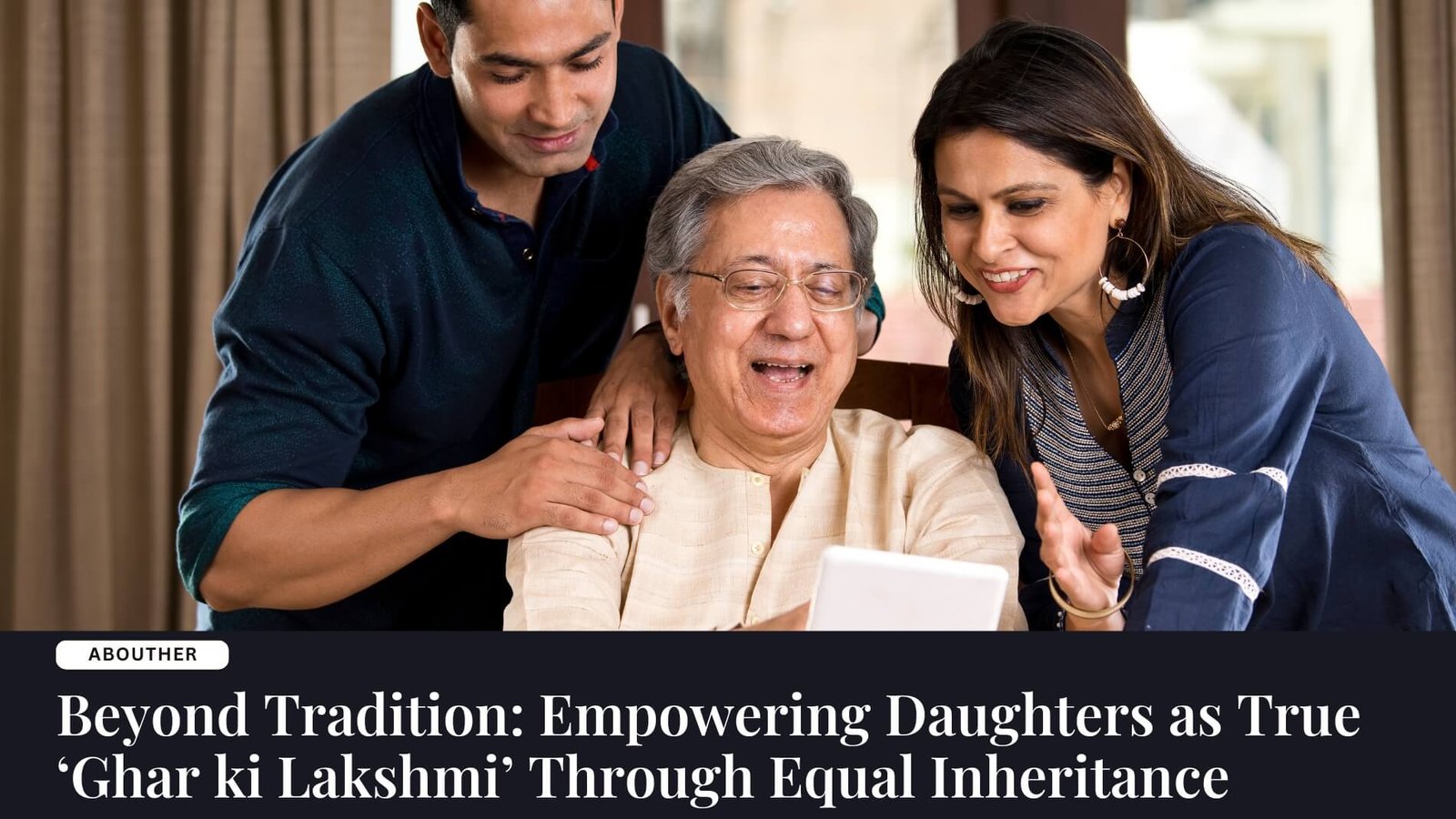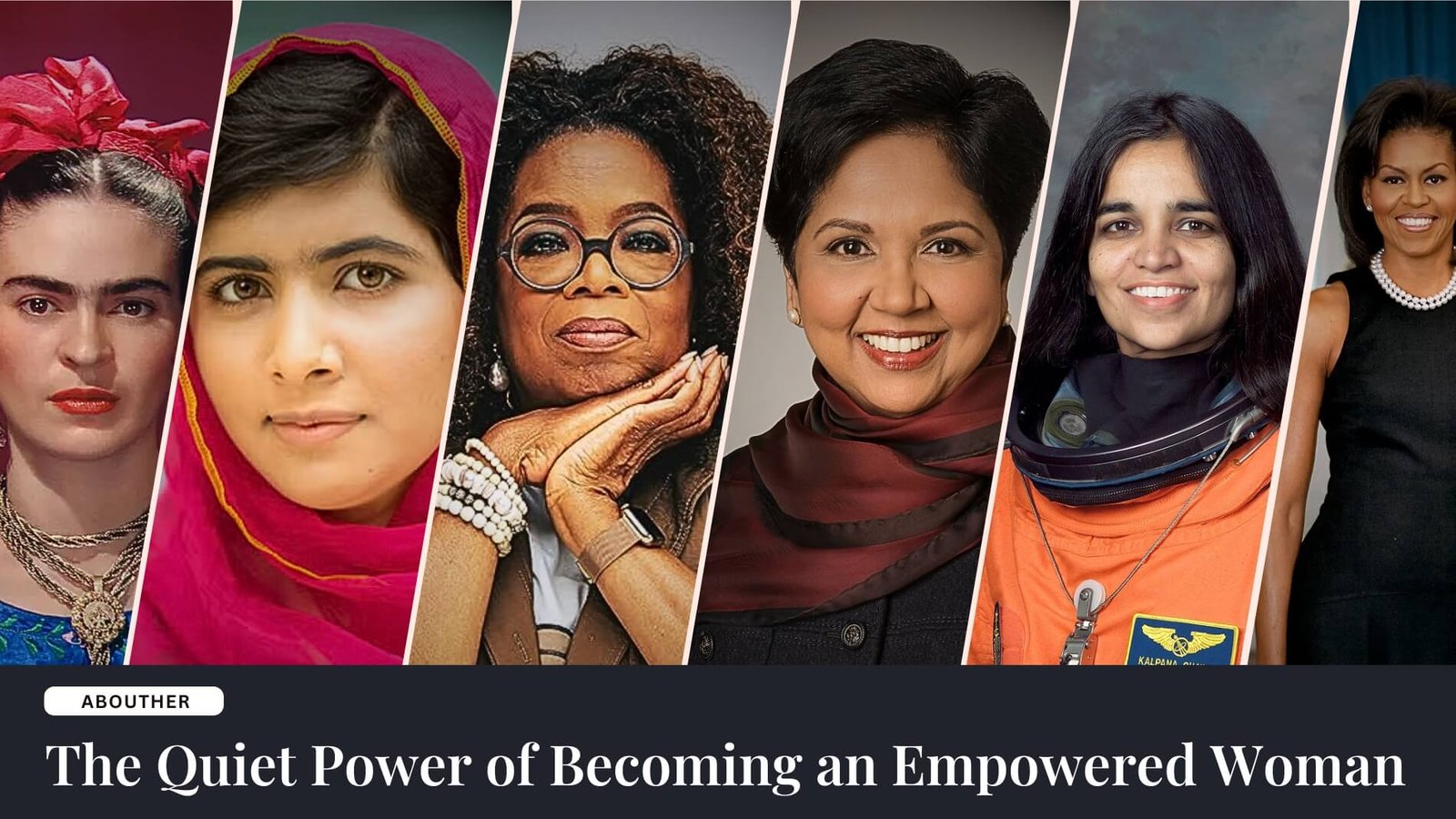Beyond Tradition: Empowering Daughters as True ‘Ghar ki Lakshmi’ Through Equal Inheritance
In many societies, particularly in India, the birth of a daughter is often celebrated with phrases like “Ghar mein Lakshmi aayi hai” — implying that she brings good fortune, wealth, and prosperity to the family, much like the Goddess Lakshmi. This deep-seated cultural belief venerates daughters as symbols of grace and prosperity. Yet, when it comes to inheritance and legacy, daughters are frequently overlooked in favour of sons. This dichotomy raises a pressing question: If daughters are viewed as harbingers of fortune, why are they not granted an equal share of the family’s wealth?
In a world where progress is accelerating, and traditional roles are being redefined, it’s time to address the systemic inequity that undermines the very essence of this belief. Here’s a closer look at why granting daughters equal inheritance rights isn’t just fair but transformative — for families, societies, and future generations.
Redefining Prosperity Beyond Symbolism
For centuries, daughters have been expected to bring joy and prosperity to their families, but we often overlook their well-being and financial security. By restricting a daughter’s access to family wealth, we inadvertently stifle her independence and limit her potential. True empowerment means allowing her to embody the role of ‘Lakshmi’ not just symbolically but in a tangible way. Equal inheritance can provide daughters with the resources they need to pursue their dreams, safeguard their futures, and support their loved ones.
Financial empowerment is essential for a daughter’s stability and self-worth. When a family invests in her prosperity, it reinforces her value within the family unit and society. By redefining prosperity to include her well-being, we extend the role of Lakshmi to its fullest expression—allowing daughters to contribute to their happiness and security and, by extension, to the well-being of those around them.
Honouring Through Action, Not Mere Words
While honouring daughters with symbolic titles is a beautiful gesture, actions speak louder than words. Calling a daughter the family’s good fortune but withholding her rightful inheritance is contradictory. If we believe in her value, then let’s translate this sentiment into action. Equal inheritance sends a powerful message that her presence and contributions are valued beyond empty words.
Providing daughters with equal inheritance also highlights the need to move from patriarchal traditions to progressive values. It’s not about diminishing the roles of sons; instead, it is about elevating daughters to a status that respects their role in the family legacy. Such actions reinforce that daughters are integral to the family’s prosperity and continuity, strengthening their place within the familial structure.
Also Read: Why Hasn’t the U.S. Elected a Female President Yet?
Equal Footing, Equal Rights
In today’s world, daughters are breaking barriers in every field — from business to science, from art to governance. They are providing emotional, financial, and practical support to their families in countless ways. It’s only fair that we recognise this evolving role by giving them equal rights in family wealth. When daughters have an equal share in inheritance, it acknowledges their contributions and respects their place within the family.
Imagine a world where daughters don’t have to rely on someone else for financial security but can stand on their own feet, fortified by the inheritance that recognises their worth. This not only elevates their confidence but also promotes equality within the family, setting a powerful precedent for others. Respecting their rights affirms that a daughter’s contributions are valued and that she, too, is a crucial part of the family’s legacy.
Strengthening the Family Bond
Equality within a family creates a strong foundation for deeper bonds and relationships. When daughters know they are valued at par with their brothers, they feel a stronger sense of belonging. This can foster a harmonious family environment where love and respect flow freely between siblings and parents. Conversely, when daughters are denied equal rights, it can lead to feelings of resentment and alienation.
An equal inheritance policy not only recognises daughters as equals but also strengthens their attachment to their family of origin. This sense of equality fosters loyalty, respect, and unity. A daughter who knows she is valued just as much as her brother will naturally feel more connected to her family. This familial harmony benefits everyone, as it brings siblings closer and helps maintain a supportive family structure.
Balancing Tradition with Modernity
Giving daughters equal inheritance rights bridges the gap between honouring traditional values and embracing modern ideals. It’s a perfect example of how cultural heritage can evolve to stay relevant in a changing world. By treating daughters and sons equally, families uphold the core principles of their traditions while fostering progressive attitudes that align with today’s realities.
Families can preserve cherished customs without clinging to outdated practices that limit women’s potential. The concept of ‘Ghar ki Lakshmi’ need not be a mere metaphor. It can become a reality when we allow daughters to inherit wealth and participate fully in the family legacy. This integration of tradition with modernity enriches families and sets a powerful example of inclusivity.
Financial Empowerment as True Prosperity
Daughters are as much a part of the family as sons. Their financial independence and empowerment should be a priority. When families give daughters their rightful inheritance, they empower them to make choices, pursue dreams, and support themselves and their families. This inheritance is more than just money—it’s a tool that enables daughters to break free from age-old stereotypes and societal barriers.
Financial empowerment provides daughters with the means to stand on their own. It instils confidence and grants them the freedom to build their future on their terms. By supporting daughters’ financial independence, families encourage them to be proactive, resilient, and self-sufficient. This is true prosperity — not just for the daughter but for the family and community as a whole.
Setting a New Norm for Future Generations
Granting daughters equal inheritance rights is about more than the present. It’s about laying the groundwork for a society that believes in genuine equality. When families give daughters their due, they set an example for the younger generation, instilling in them the values of respect, fairness, and equality.
A future where sons and daughters are treated as equals in inheritance is a future where family dynamics are based on fairness and inclusivity. This generation’s choices will shape societal norms, creating a world where young men and women understand that wealth and prosperity include financial equality and security for everyone in the family.
Also Read: Navigating Mental Health Challenges During Major Life Challenges
Celebrating Daughters as Contributors
In the traditional sense, Lakshmi is viewed as a source of wealth and success within the household. However, true prosperity lies in seeing daughters not just as symbols of fortune but as active contributors to the family’s growth and legacy. By acknowledging daughters as contributors rather than mere beneficiaries, we honour their potential and celebrate their unique role within the family.
When daughters are empowered with financial resources, they become capable of making significant contributions to their families, both financially and emotionally. This approach shifts the narrative from daughters being passive beneficiaries to being proactive participants in the family’s legacy. In doing so, we create a lasting impact that celebrates daughters as integral pillars of the family.
A Call for Change: Moving from Words to Action
As we educate and empower our daughters, let’s extend this empowerment to the realm of financial independence. Equal inheritance for daughters is more than a step toward justice; it’s the natural culmination of a journey toward true equality. It creates stronger families, closer bonds, and more inclusive communities.
This change starts within families, the bedrock of society. It begins when we recognise that daughters deserve the same opportunities for growth and security as sons. By granting equal inheritance, we take a powerful step toward a future that values every individual equally, fulfilling the promise of “Ghar ki Lakshmi” in its truest, most impactful sense.
Let’s make ‘Ghar ki Lakshmi’ more than a title—let’s make it her right.
Share This On Social
![Sangeeta-Relan-AH-525×410[1]](https://aboutherbysangeeta.com/wp-content/uploads/2024/06/Sangeeta-Relan-AH-525x4101-1.jpeg)
I’m Sangeeta Relan—an educator, writer, podcaster, researcher, and the founder of AboutHer. With over 30 years of experience teaching at the university level, I’ve also journeyed through life as a corporate wife, a mother, and now, a storyteller.















